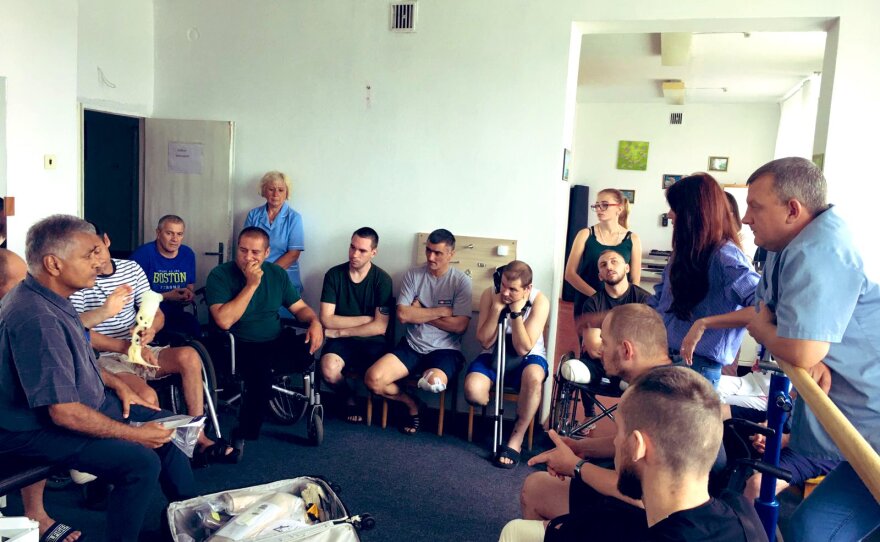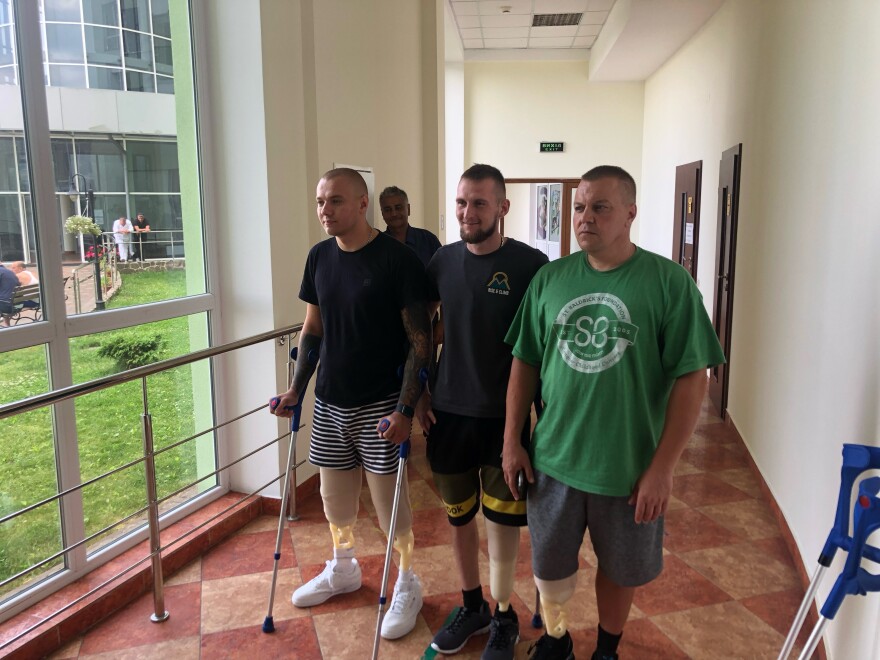When UC San Diego urologist Manoj Monga heard about the outbreak of war in Ukraine, he bought a plane ticket, knowing only that he wanted to go there and help. He ended up doing something well outside his medical expertise.
He joined hands with a San Diego startup, called LIMBER Prosthetics and Orthotics that creates artificial legs with a 3D printer. Dr. Monga found men who had lost limbs, one of them a double amputee, and he fitted them with LIMBER’s artificial legs.
“We treated four men. One was a 20-year-old from Mariupol who lost both limbs. So a total of five limbs were delivered altogether,” Dr. Monga said. “These are regular people. They could have been your neighbors. They left their homes, their lives, their loved ones to go east, to fight. To defend their homeland.”
Videos shot at the rehab hospital show the men walking on their prosthetic limbs. Monga said for him it was a “learning experience.” At the start of the process, he had to scan the lower bodies of the men using an iPhone equipped with Face ID.
LIMBER took those scans and fed the data into a computer in San Diego as a 3D model, used the data to create prosthetics with a 3D printer then shipped the prosthetics to Ukraine.

“The LIMBER team was fantastic. They were up, facetiming with us at two or three in the morning, to make sure that everything went smoothly,” said Monga. “The seriousness of the responsibility we all felt to these heroes gave us the focus and determination we needed to be successful.”
Monga said some of the amputees wanted to know when they could go back and fight the Russians to protect their country.







